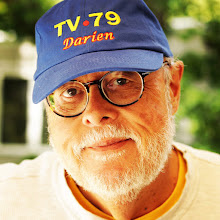WHO SAYS IT'S "NEWS" ?
In a time of newsroom layoffs, citizens have every right to be skeptical of what passes for “news” these days in print, broadcast and websites.
As a former journalist I know the diligence that should go into vetting a story for accuracy before it is reported. Sadly, those standards aren’t what they used to be.
Competitive pressures and smaller staffs force too many newsrooms to “get it out” first, then check the facts. Bloggers and “citizen journalists” muddy the process by offering opinions under the guise of news. And far too many news organizations regurgitate handout material (press releases, video news releases, freebies) and report them without disclosure or much fact-checking.
Even “soft” news should be suspect: theater critics shouldn’t be given free tickets or restaurant reviewers free meals. Their reporting should be done anonymously, replicating the average consumer’s experience.
Even big, traditional news organizations have found their increasing use of freelancers who haven’t been following their rules is causing big problems… witness this fascinating mea culpa from the New York Times’ Public Editor.
And don’t get me started on groups like Fox News that keep reminding us that “We report, you decide”. The more a site has to proclaim its quality, the less it probably has.
No wonder readers / viewers / listeners are skeptical. But what fascinates me is that most of us, instead of seeking out differing viewpoints to balance the bias, just tend to wallow in “news” that supports our own views.
Fox news fans rely on The Drudge Report to confirm Fox’s slanted coverage. And NPR listeners never miss Keith Olberman or Rachel Maddow to bolster their liberal views.
Here’s a fascinating exercise:
Watch your favorite evening network newscast… ABC, CBS, NBC of Fox. Then watch that same evening’s newscast on the BBC America, France’s Antenne Deux or Italy’s RAI networks. You’d hardly know that you’re viewing coverage of the same day’s events.
If you read the NY Times, add another out-of-town or international paper’s website to your reading list. And whatever your political leanings, always give a look at Pro Publica, the “public interest” (non-profit) news website.
When driving, I always try to catch Rush Limbaugh and Neil Boortz, not because I agree at all with their jaundiced views, but because I need to hear and understand them. And who knows, maybe I’ll hear them say something that will actually make me THINK!


0 Comments:
Post a Comment
Subscribe to Post Comments [Atom]
<< Home